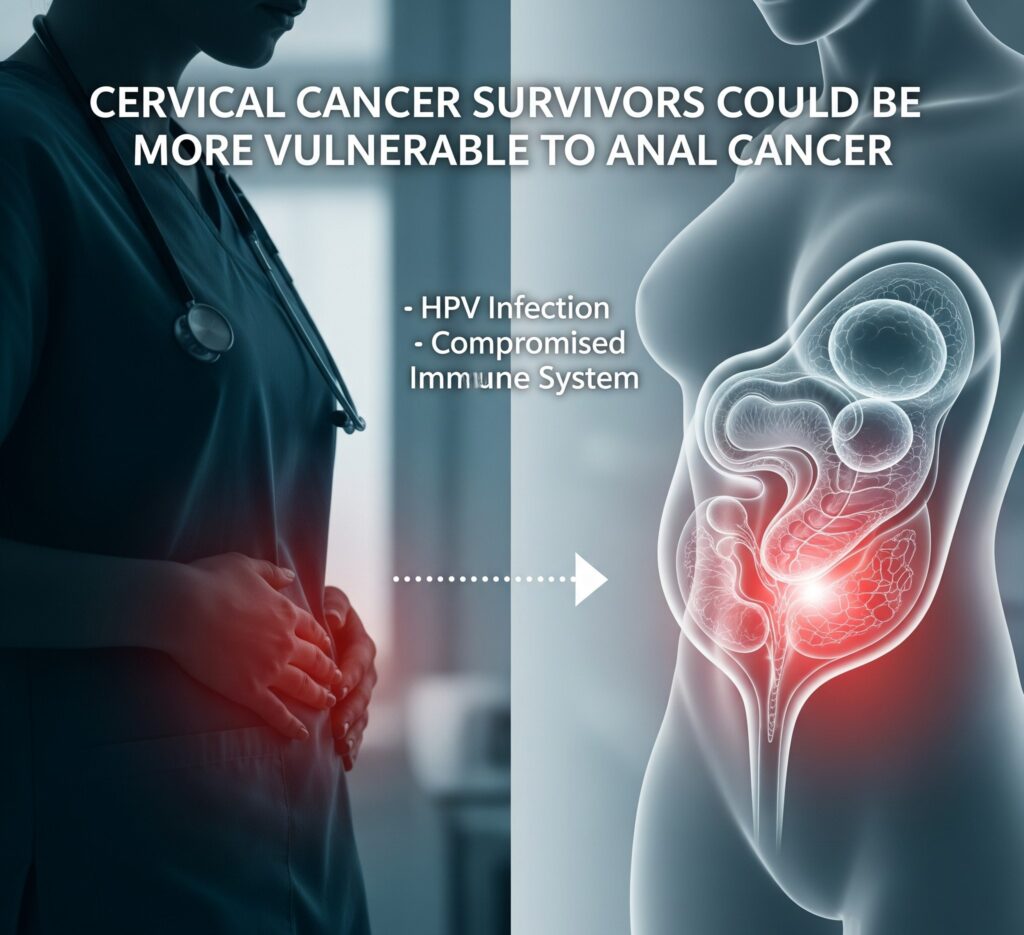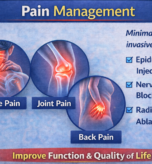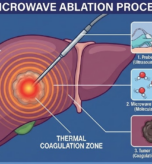
Cervical cancer survival rates have improved in recent years. Doctors credit this progress to better screening, HPV vaccines, and advanced treatments. But research shows that survivors may face a higher long-term risk of developing anal cancer.
This connection makes awareness essential. Both patients and healthcare providers need to understand the risks, schedule regular checkups, and take early action.
Why Cervical Cancer Survivors Face a Higher Risk of Anal Cancer
The strongest link between cervical cancer and anal cancer is HPV (human papillomavirus).
- HPV is the leading cause of cervical cancer.
- The same virus also causes most anal cancer cases.
Because of this, women who survive cervical cancer often face a higher risk of developing anal cancer later. Studies suggest that their risk is nearly double that of women who never had cervical cancer. Not all survivors will develop anal cancer, but the numbers are high enough to demand attention.
How HPV Links Cervical Cancer and Anal Cancer
HPV infection drives both conditions. High-risk strains of the virus can remain in the body for years. Even after treatment for cervical cancer, survivors remain exposed to future complications such as anal cancer.
Key Reasons Cervical Cancer Survivors Are More Vulnerable
Several factors increase risk for survivors:
1. HPV Infection and Shared Risk Factors
High-risk HPV strains are common to both cancers, increasing the likelihood of recurrence in nearby tissues.
2. Impact of Radiation Therapy
Pelvic radiation, often used in cervical cancer treatment, can cause long-term damage to surrounding tissue, making it more prone to disease.
3. Immunity and Lifestyle Challenges
Weakened immunity reduces the body’s ability to fight HPV. At the same time, smoking, poor diet, and lack of screenings can further raise the risk.
What Studies Reveal About Cervical and Anal Cancer Risk
International research confirms that cervical cancer survivors develop anal cancer at higher rates.
- Survivors with HPV-related disease face the greatest risk.
- The threat remains for years, even after successful treatment.
This evidence highlights the need to treat anal cancer prevention as a medical priority, not as an afterthought.
Symptoms of Anal Cancer Every Survivor Should Watch For
Early detection saves lives. Survivors should watch for:
- Bleeding from the anus or rectum
- Persistent anal pain or itching
- A lump near the anal area
- Changes in bowel habits, such as narrow stools
- Unexplained weight loss or fatigue
These symptoms often resemble minor conditions, like hemorrhoids. But they must never be ignored. Any unusual changes should be reported to a doctor right away.
Prevention and Monitoring Strategies for Cervical Cancer Survivors
The good news is that prevention works. Survivors can take these steps to reduce their risk:
1. Screening and Medical Follow-Ups
Regular exams, including anoscopy and other screenings, can detect changes early. Survivors should maintain follow-up care with oncologists and gynecologists.
2. Role of HPV Vaccination
Even after cervical cancer treatment, vaccination can protect against additional high-risk HPV strains.
3. Lifestyle Changes for Better Protection
Quitting smoking, eating a balanced diet, and staying physically active help strengthen immunity and reduce cancer risk. Survivors should also manage stress and get adequate sleep, since both play an important role in maintaining immune health.
4. Patient Education and Support
Knowledge empowers survivors. Support groups and awareness programs can help them make informed choices and stay proactive about long-term health.
Why Awareness and Early Action Are Critical for Survivors
After treatment, many survivors focus on recovery and returning to normal life. But the increased risk of anal cancer remains a silent threat.
Raising awareness ensures earlier diagnoses and better survival outcomes. Doctors should include anal cancer screening in survivorship care plans. This proactive approach improves prevention, treatment, and quality of life.
Conclusion
Cervical cancer survivors face unique health challenges. One of the most serious is the elevated risk of anal cancer, driven by HPV and the side effects of treatment.
Key takeaways:
- The risk is real but manageable.
- Awareness, prevention, and regular screening are essential defenses.
- With medical support and healthy lifestyle choices, survivors can protect their long-term health and live full, healthy lives.
By staying informed and proactive, survivors not only safeguard their own future but also inspire others facing similar battles. Awareness and preventive action today can mean healthier years ahead.






